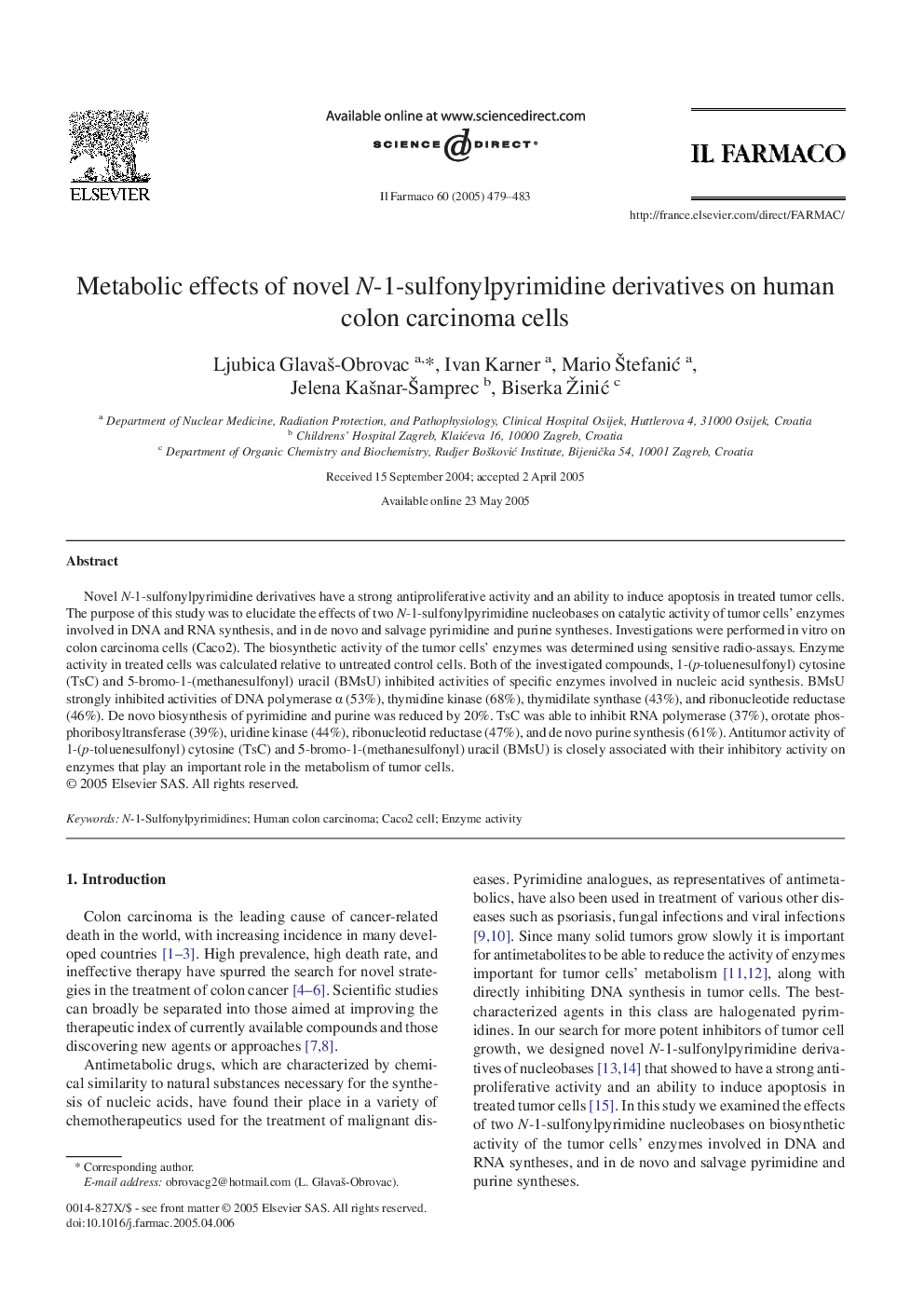| Article ID | Journal | Published Year | Pages | File Type |
|---|---|---|---|---|
| 8993363 | Il Farmaco | 2005 | 5 Pages |
Abstract
Novel N-1-sulfonylpyrimidine derivatives have a strong antiproliferative activity and an ability to induce apoptosis in treated tumor cells. The purpose of this study was to elucidate the effects of two N-1-sulfonylpyrimidine nucleobases on catalytic activity of tumor cells' enzymes involved in DNA and RNA synthesis, and in de novo and salvage pyrimidine and purine syntheses. Investigations were performed in vitro on colon carcinoma cells (Caco2). The biosynthetic activity of the tumor cells' enzymes was determined using sensitive radio-assays. Enzyme activity in treated cells was calculated relative to untreated control cells. Both of the investigated compounds, 1-(p-toluenesulfonyl) cytosine (TsC) and 5-bromo-1-(methanesulfonyl) uracil (BMsU) inhibited activities of specific enzymes involved in nucleic acid synthesis. BMsU strongly inhibited activities of DNA polymerase α (53%), thymidine kinase (68%), thymidilate synthase (43%), and ribonucleotide reductase (46%). De novo biosynthesis of pyrimidine and purine was reduced by 20%. TsC was able to inhibit RNA polymerase (37%), orotate phosphoribosyltransferase (39%), uridine kinase (44%), ribonucleotid reductase (47%), and de novo purine synthesis (61%). Antitumor activity of 1-(p-toluenesulfonyl) cytosine (TsC) and 5-bromo-1-(methanesulfonyl) uracil (BMsU) is closely associated with their inhibitory activity on enzymes that play an important role in the metabolism of tumor cells.
Keywords
Related Topics
Health Sciences
Pharmacology, Toxicology and Pharmaceutical Science
Drug Discovery
Authors
Ljubica GlavaÅ¡-Obrovac, Ivan Karner, Mario Å tefaniÄ, Jelena KaÅ¡nar-Å amprec, Biserka ŽiniÄ,
